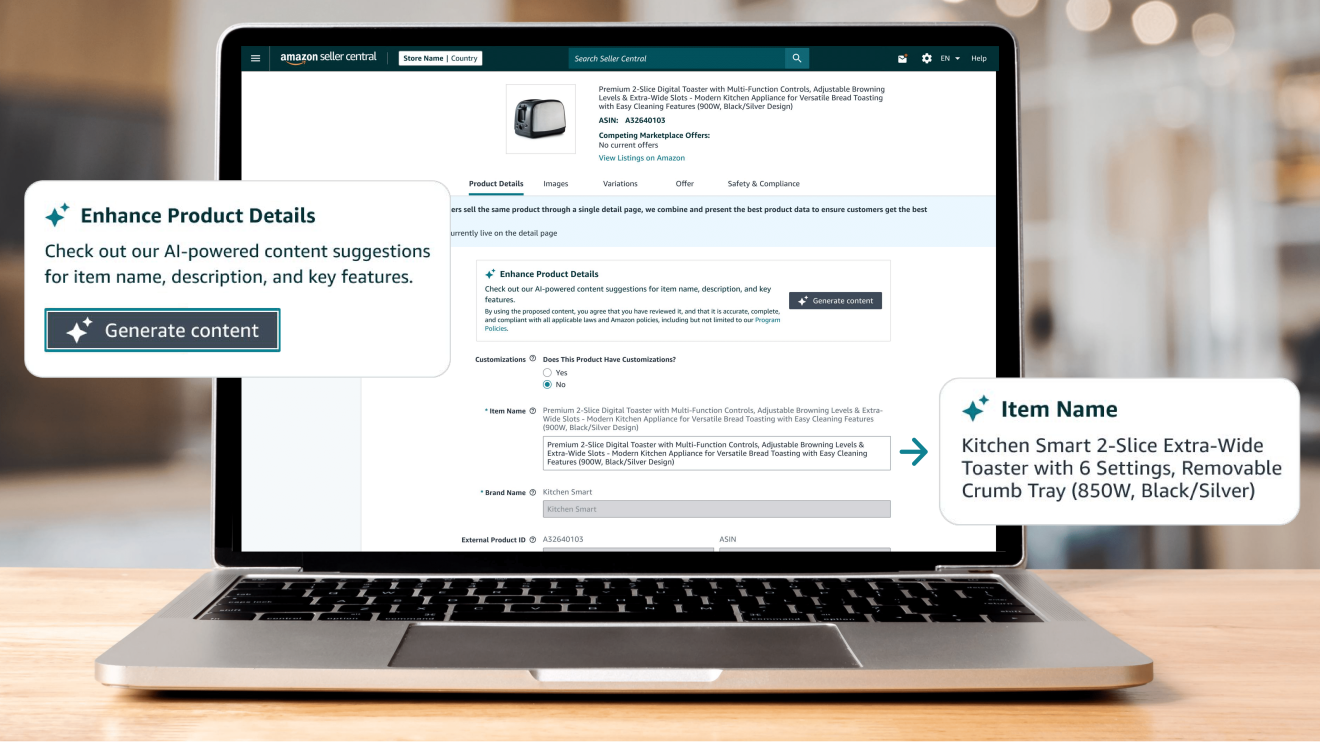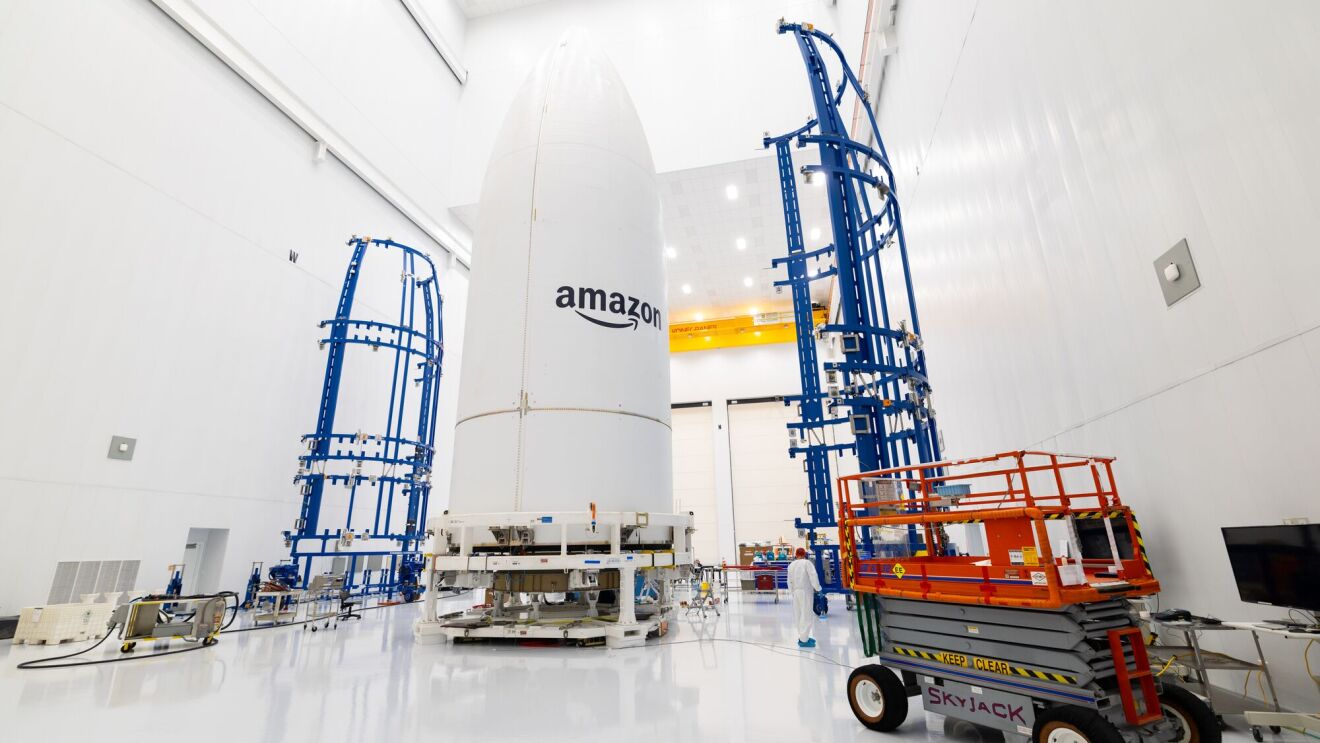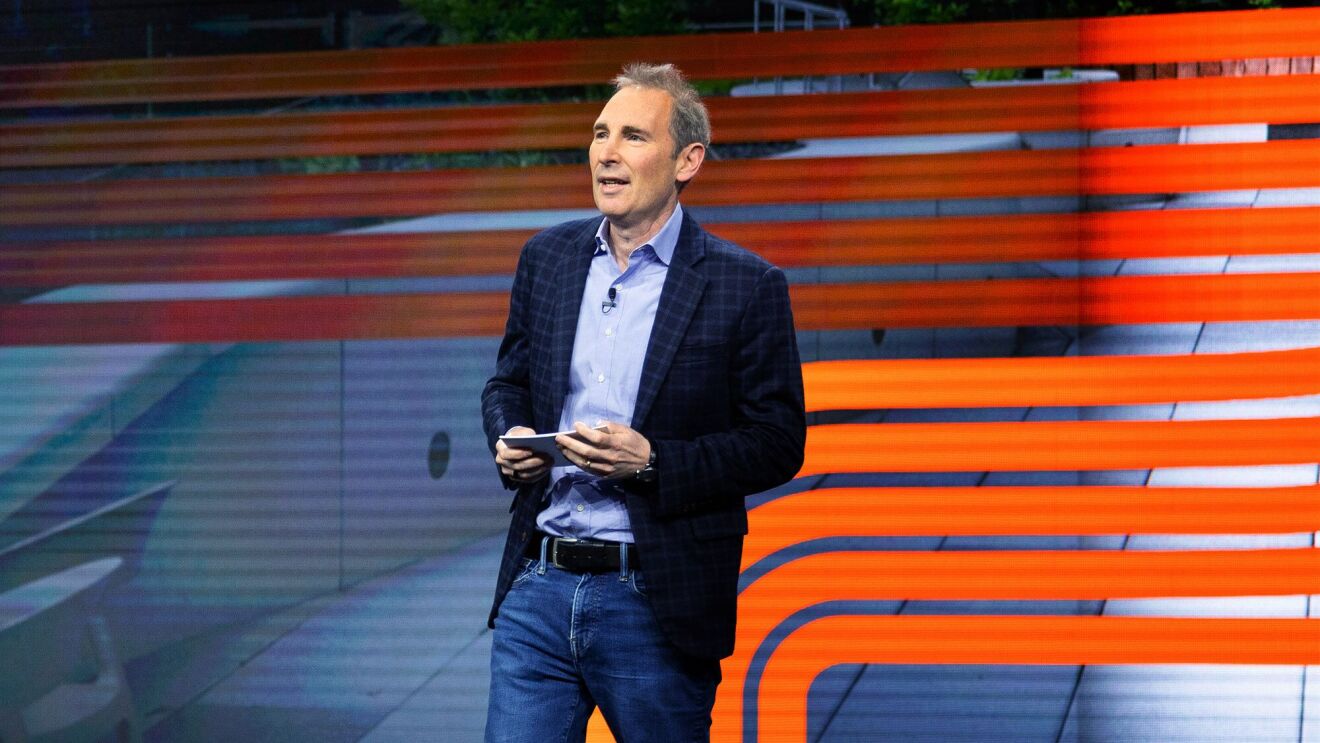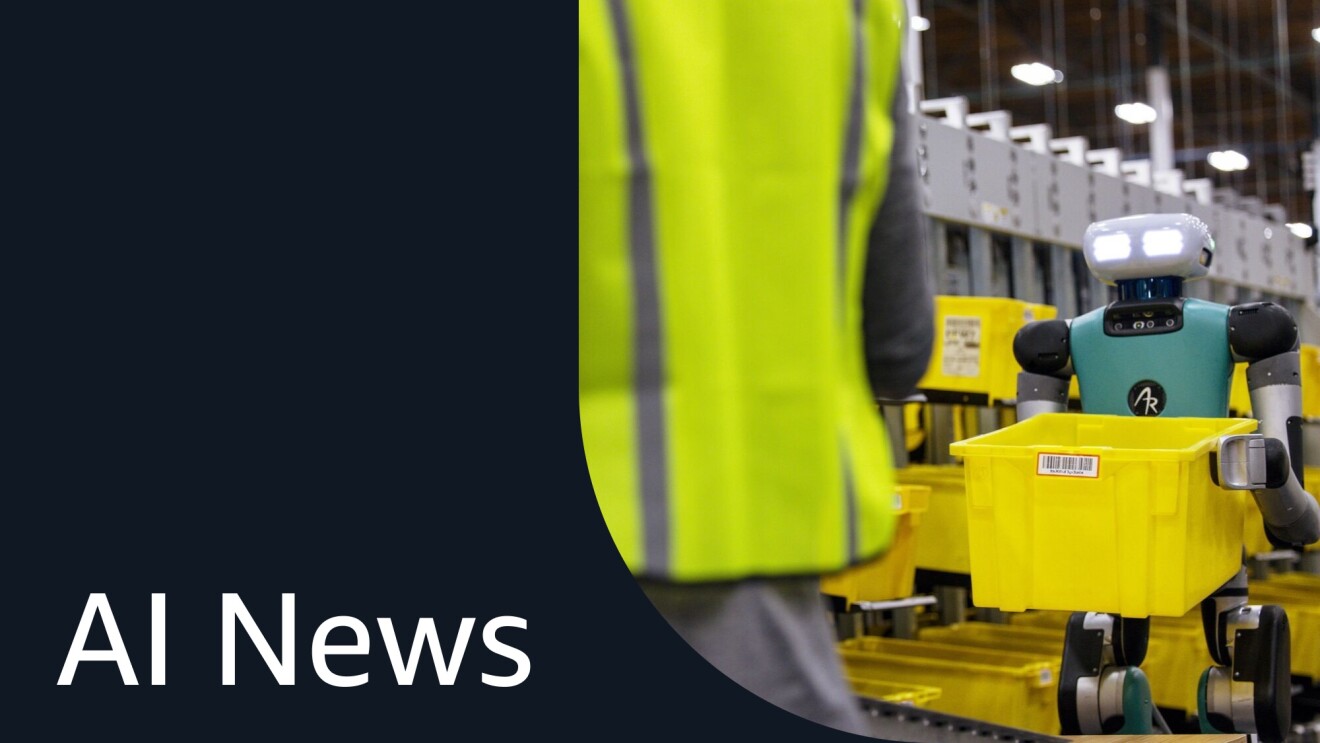Imagine the simple task of grocery shopping without being able to see the aisles, the products, or prices. And that’s assuming you could find your way to a grocery store.
“Once you get to the right place, you pick up a couple of cans. Is this a can of beans? Is this a can of peas? A can of corn? If you're blind every item can looks the same,” said Korn, who serves as a director of accessibility at Amazon. “But if you can shop online, then not only do you know what it is you're buying, you can get detailed product information. All the labeling that we say should be on products so that sighted folks can know what they're buying, we have that online.”
When you take a big step back and look at what we're doing with a long lens, this is about independence.
Peter Korn
Korn’s mission is to make technology, and by extension the world, more accessible. To do it, he and the teams he works with across all parts of Amazon, engineer ways to level the playing the field so that everyone can access the same information, books, or movies, even if they have a disability that might otherwise make it difficult.
The options are extensive, and not always obvious to people who don’t need them. Someone with trouble reading can choose the OpenDyslexic font on their Kindle e-Reader, customers losing their vision can turn on the Fire TV magnifier and watch Amazon Originals on Prime Video with audio description turned on, and someone who is blind can find everything accessible on Amazon.com, where product pages are optimized for anyone with a screen-reader program.
No detail is too small. Korn’s collaboration with the website team even led to a change in the color contrast of those ubiquitous star ratings on Amazon products, so those with visual impairments can easily make them out.
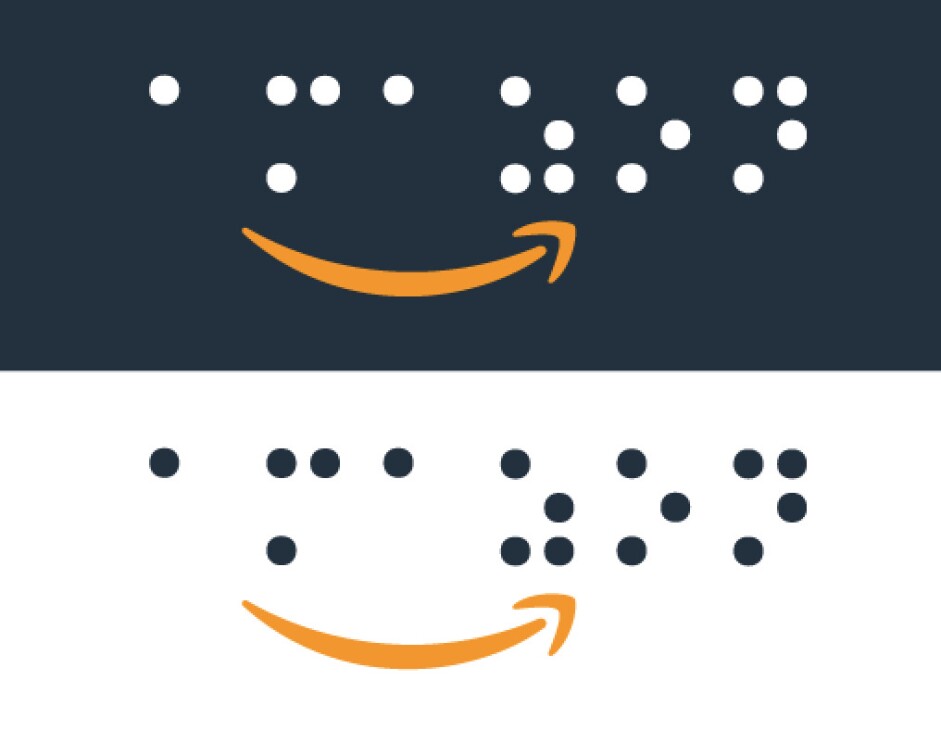 Amazon's logo in braille
Amazon's logo in brailleOn the internet, Korn likes to say, no one knows you have a disability. Features like magnification, large print, and the VoiceView screen reader are built into Amazon’s devices so they can be operated regardless of any visual impairment. And Amazon Lockers, used for self-service delivery, have options so that people in wheelchairs get a choice that’s lower to the ground and within reach.
And then there’s Alexa, the voice service on Amazon. “It's very much a golden age. We’ve heard from many customers that Alexa is a huge game changer,” he said.
Korn says being the earth’s “most customer-centric company” means taking all people into account and giving people with disabilities a rich and complete experience that is no different from others. And the results are often better for everyone.
He loves the example of the little USB plug that’s used to charge Amazon devices, and those of most other companies. But it's difficult to identify the proper way to align the plug. So, Korn and his team engineered a version with a small notch on one side that’s easy to feel, so you don’t have to see the plug to know which way it should be oriented. The result is a popular cable that makes plugging-in technology less of a hassle for everyone.
“When you take a big step back and look at what we're doing with a long lens, this is about independence. You don't want to have to be dependent on someone else to buy your groceries, to return your packages, to help select a book for you to read, or to turn the pages in your book if you don't have hands," said Korn.
"To the greatest extent possible, if we're doing our job right, we are giving our customers autonomy, independence, respect, and dignity.”
Trending news and stories
- Amazon unveils 7 new robots powering faster, safer deliveries: Go inside our most innovative delivery station yet
- Introducing Vulcan: Amazon's first robot with a sense of touch
- This new AI tech will make sorting packages easier for Amazon's delivery station employees
- How Amazon helps data center communities thrive


